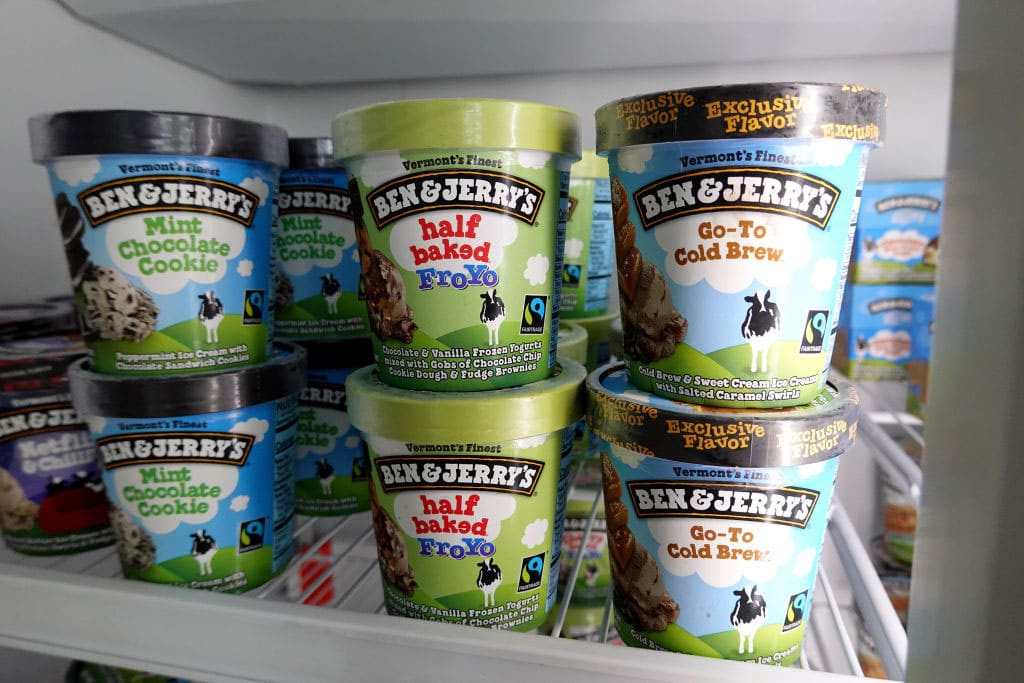
StandWithUs and the Israeli-American Coalition (IAC) for Action urged Unilever in an October 15 letter to overturn Ben & Jerry’s decision in July to withdraw from the “Occupied Palestinian Territory.”
The letter, written by StandWithUs CEO and Co-Founder Roz Rothstein on behalf of both organizations, stated that they were “disappointed” that Unilever is claiming that they cannot overrule Ben & Jerry’s on the matter because their contractual agreement states that Ben & Jerry’s has full autonomy to engage in social justice activism. Rothstein argued that Ben & Jerry’s is actually in violation of their contract with Unilever over its Israel decision because the contract states that Ben & Jerry’s can only engage in such action when it is “commercially reasonable.”
“Neither Unilever nor Ben and Jerry’s has explained how it is commercially reasonable to effectively boycott Israel—because it is not. Boycotting an entire country is, in fact, commercially unreasonable, especially when it triggers counter-boycotts by states and consumer groups and divestment of state pension funds,” Rothstein wrote. “In fact, since the boycott announcement, Unilever has underperformed competitors, suggesting that the boycott decision has harmed your investors.”
Rothstein also noted that the contract between Ben & Jerry’s and Unilever states that the ice cream company is required to “use commercially reasonable efforts” to “conduct all facets of the Business in Israel.” “Ben and Jerry’s must explain—to you and to the investing public—how its social mission requires such a boycott when it signed a contract showing that doing business in Israel was consistent with its social mission,” Rothstein wrote. “Clearly, it is Ben and Jerry’s that is in breach, and it is within Unilever’s rights to reverse the Board.”
“Ben and Jerry’s must explain—to you and to the investing public—how its social mission requires such a boycott when it signed a contract showing that doing business in Israel was consistent with its social mission.” — Roz Rothstein
Additionally, Rothstein argued that it’s “false” for Unilever and Ben & Jerry’s to state that the ice cream company will remain in Israel. She noted that Anuradha Mittal, the Ben & Jerry’s Independent Board Chair, “has explicitly promoted boycotts targeting all of Israel and implied Israel’s existence is a ‘catastrophe.’” Mittal has also alleged that the Ben & Jerry’s board did not approve the segment of the July announcement stating that the ice cream company would remain in Israel.
More importantly, Rothstein pointed to the fact that Israeli law prohibits companies from boycotting Israelis “based on their location. This means that Ben and Jerry’s can stay and sell to all Israelis, or it can leave Israel, but it cannot boycott only some Israeli citizens or communities without violating Israeli domestic law.”
Rothstein concluded: “We expect Unilever to correct its error and use its clear authority under the merger agreement to reverse the Ben and Jerry’s Israel boycott. We look forward to your response and would appreciate hearing from you by close of business on Wednesday, October 20, 2021.”
Unilever’s media contact in their United States headquarters did not respond to the Journal’s request for comment.
On October 12, the Simon Wiesenthal Center announced that they are urging grocery stores to stop selling Ben & Jerry’s ice cream over their Israel decision. “It was never just about ice cream sold in East Jerusalem,” Rabbi Abraham Cooper, Associate Dean and Global Social Action Director at the Simon Wiesenthal Center, said in a statement. “It is all about Ben and Jerry’s ice cream company profits being leveraged by an activist anti-Semite who hates Israel and defends Hamas – and the corporate executives at Unilever letting it happen. This is about arrogance and irresponsibility, enabling the odious anti-Semitic BDS [Boycott, Divestment and Sanctions] movement to use money from a global brand to brand Jews as occupiers in their own land at a time when there is a spike of violent attacks against Jews from Germany to the UK to the U.S.”


































